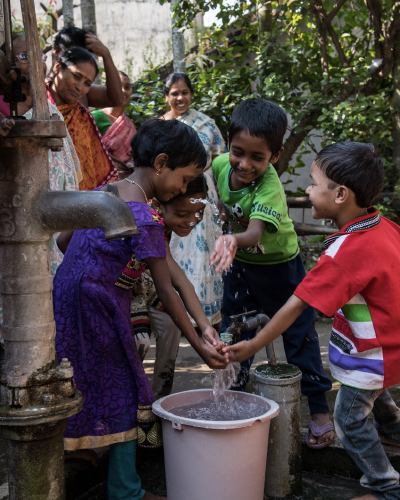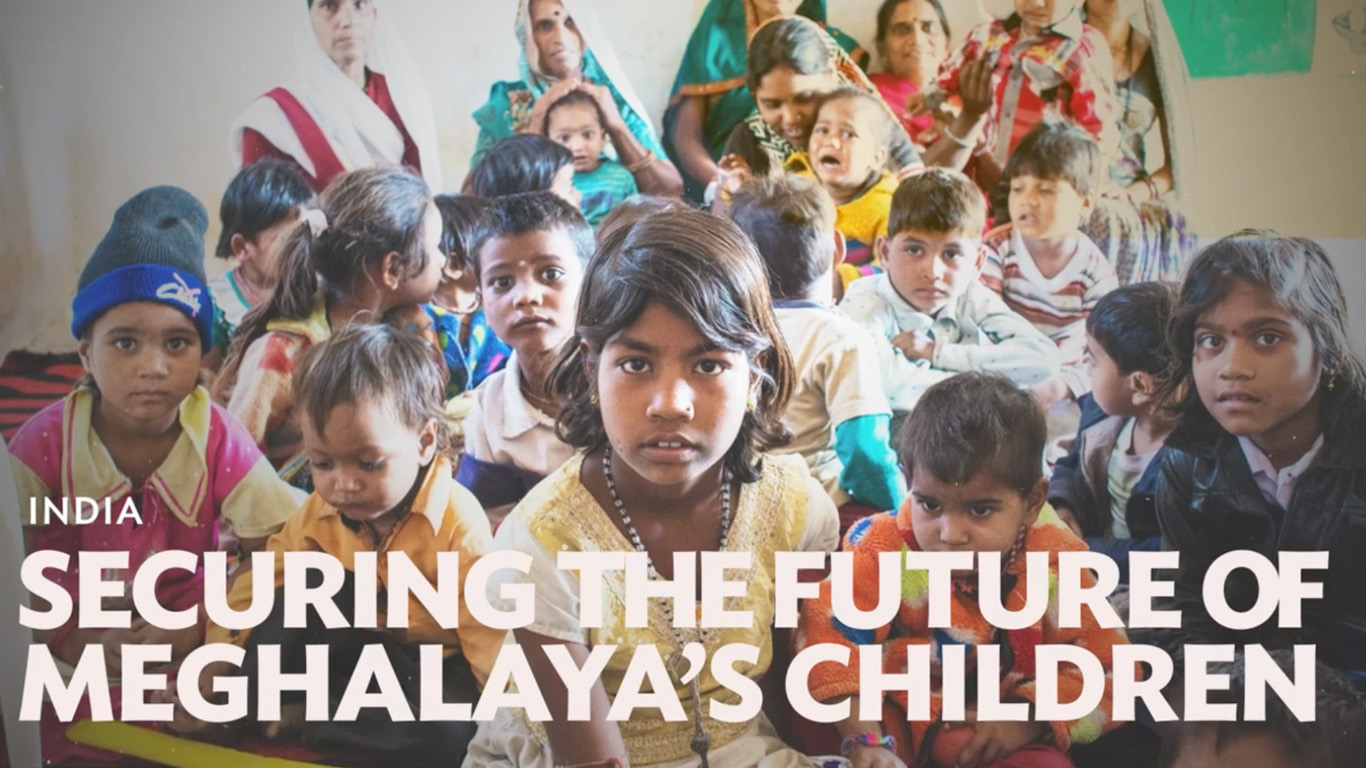Children in Meghalaya, India, face significant challenges to their growth and development, but change is on the way. With support from ADB and Japan, a new initiative is set to enhance critical childcare services, improve nutrition, train educators, and upgrade facilities—giving young children a better start in life.
Listen to the story
breaking barriers to early development
The first six years of life, especially the first 1,000 days, are crucial for a child’s growth and development. In Meghalaya, a rural state in Northeast India, early childhood development (ECD) services are delivered through government-run Anganwadi centers (AWCs). However, access remains limited— only 36% of children aged 3–6 receive early childhood care and education at the AWCs. Anganwadi workers spend just 9% of their time on home visits and recommended childcare for children under 3 years old remains largely unimplemented.
With 34% of the population living below the poverty line, Meghalaya’s youngest residents face high rates of malnutrition. Nearly half of the children experience stunting. The staff-to-child ratio at AWCs for ages 3–6 is double the recommended 1:20, and training for Anganwadi workers is outdated, lacking focus on maternal mental health, and care for children under 3.
a holistic approach to childcare and education
To address these challenges, the Early Childhood Development (ECD) Project in Meghalaya—backed by an ADB loan and technical assistance from the Japan Fund for Prosperous and Resilient Asia and the Pacific—was approved to strengthen childcare services for children aged 0–6. This aligns with India’s Overarching Scheme for Holistic Nourishment, FY2022–2026, and Meghalaya’s ECD Mission, integrating efforts across health, education, women’s, child development, and climate resilience departments.
The project focuses on the following key improvements:
- New and upgraded childcare centers: Climate-resilient Anganwadi will be transformed into Creche cum ECD Learning Centers—offering extended hours, dedicated learning spaces, and play areas.
- Stronger home-based childcare (0–1.5 years): Joint home visits by accredited social health activists and Anganwadi workers will provide prenatal care, parenting guidance, and early childhood learning support. Parent circle meetings and an ECD helpline will offer support and information.
- Enhanced nutrition: The project will introduce eggs in the Supplementary Nutrition Program and establish community gardens. Community participation is encouraged through village organizations and employment councils, with faith institutions helping build trust. Children in hundreds of childcare centers will see nutrition benefits from the new Prime Minister’s Overarching Scheme for Holistic Nourishment or Poshan Vatikas (nutrition gardens) built.
- Workforce development: A new state-specific early childhood curriculum will train educators, while a monitoring tool will help detect neurodevelopmental disabilities early.
- Support for maternal mental health: Counseling services and parent circle meetings will help caregivers manage stress and improve childcare practices.
Drawing from ADB’s prior early child development technical assistance projects in other countries, key lessons include integrating interventions, leveraging government infrastructure for cost efficiency, and securing community support.
improving childcare means a brighter future
By 2028, the project aims to double the number of children aged 3–6 in Anganwadi centers and expand childcare access for children aged 1 month to 3 years, with at least half of the beneficiaries being girls. The number of trained educators will quadruple, and 70% of children aged 6–18 months, along with pregnant and lactating women, will receive supplementary nutrition.
With these efforts, Meghalaya is set to transform early childhood care, ensuring that more children receive the nurturing and support they need to thrive.
“The first early years—including especially the first 1,000 days—are critical to a child’s growth and development. Providing ample nutrition and nurturing care early on and enabling both parents are essential to building a strong growth foundation for a child. At the heart of childcare are mothers, making it important to ensure they have the needed health services and support.”



